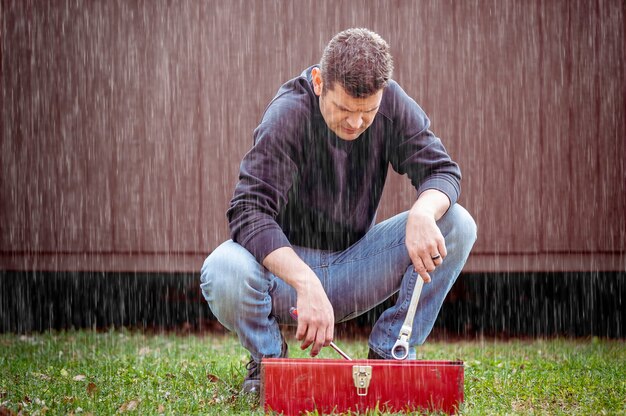
Water damage is a common and costly issue that homeowners face, often resulting from inadequate drainage systems. Maintaining an effective drainage system is crucial to preventing water damage and ensuring the longevity of your home. Here are essential tips for home drainage maintenance to keep your property safe and dry.
Understanding Your Home’s Drainage System
Before diving into maintenance tips, it’s important to understand the components of your home’s drainage system. The system typically includes gutters, downspouts, drains, and the grading around your home. Each part plays a vital role in directing water away from your property. Proper maintenance of these components ensures that water is efficiently channeled away, preventing potential damage.
Regular Gutter and Downspout Maintenance
Gutters and downspouts are your home’s first line of defense against water damage. They collect rainwater from the roof and direct it away from the foundation. Here’s how to maintain them:
- Clean Gutters Regularly: Ensure that gutters are free from leaves, twigs, and debris, especially during fall. Clogged gutters can cause water to overflow and damage your home’s foundation and siding.
- Check for Leaks and Damage: Inspect your gutters and downspouts for leaks, rust, or damage. Seamless gutters are less prone to leaks and might be a worthy investment if you frequently encounter issues.
- Ensure Proper Downspout Positioning: Downspouts should extend at least five feet away from your home to prevent water pooling around the foundation. Use extenders or splash blocks if necessary.
Grading and Landscaping
The grading of your yard is a crucial factor in preventing water damage. Proper grading ensures that water flows away from your home, rather than toward it.
- Inspect and Adjust Grading: Make sure the ground slopes away from your house. If necessary, bring in additional soil to create the right slope. A minimum slope of six inches over ten feet is generally recommended.
- Landscaping Solutions: Incorporate landscaping elements like rain gardens or swales to capture and redirect water. Planting native vegetation can also help absorb excess water.
Installing Drainage Systems
Sometimes, basic maintenance isn’t enough, and additional drainage systems are needed to handle excess water.
- French Drains: These are trenches filled with gravel and a perforated pipe that redirect water away from your house. They are especially useful in areas with standing water.
- Surface Drains and Catch Basins: These can be installed in specific areas of your yard where water tends to accumulate. They collect water and channel it away effectively.
Basement and Foundation Protection
To prevent water from seeping into your basement or damaging your foundation, consider these steps:
- Waterproofing: Apply waterproof coatings to basement walls and floors. This can be especially effective in older homes with porous concrete foundations.
- Sump Pumps: Install a sump pump in your basement to automatically remove water that enters. Ensure it is in good working condition, especially before the rainy season.
- Regular Inspections: Frequently inspect your basement and foundation for cracks or signs of water intrusion. Early detection and repair can prevent significant damage.
Septic System Maintenance
If your home relies on a septic system, proper maintenance is vital to prevent water-related issues. Hire septic tank pumping in Spanish Fork or your local area regularly, and avoid flushing harmful materials down the drain. Schedule regular inspections to detect any potential issues early on.
Final Thoughts
Maintaining your home’s drainage system is crucial to preventing water damage. From gutters and downspouts to grading and additional drainage systems, taking these steps can save you time, money, and headaches in the long run. And remember, when in doubt, seek professional help from reputable contractors for proper maintenance and repairs. Stay vigilant and protect your home from water damage! An ounce of prevention is worth a pound of cure. A well-maintained drainage system will keep your property safe and dry for years to come.
Keep an eye for more news & updates on Buzz Telecast!









